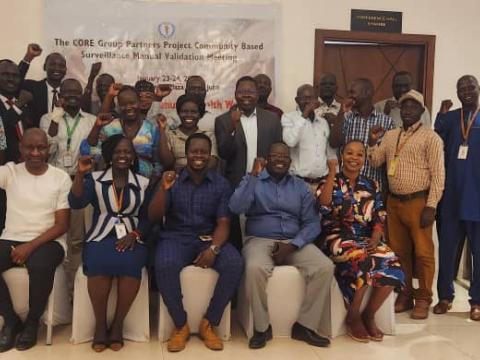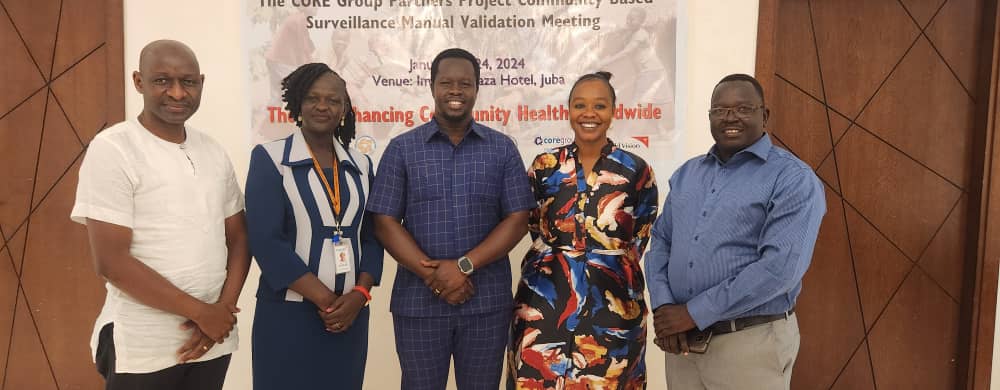South Sudan community-based disease surveillance manual validated

The community-based disease surveillance manual in South Sudan has been updated and validated, marking an important milestone in disease surveillance efforts and reflecting our unwavering commitment to improving disease surveillance and management in the region.
In efforts to enhance the work of community health volunteers – key informants and home health promoters – to detect , report, and respond to disease outbreaks, representatives of World Vision CORE Group Partners Project (CGPP), South Sudan Ministry of Health (MoH), World Health Organization (WHO), Food Agriculture Organization (FAO), and local partners reviewed, validated, and updated the existing Community-Based Surveillance (CBS) manual of CGPP during a 2-day inter-agency workshop last January.
The validation and updating of the CBS manual offered an opportune moment for supporting the ongoing portfolio expansion of CGPP South Sudan toward a One Health approach, with inclusion of the new activities under the USAID’s Global Health Security Agenda and water sanitation and hygiene (WASH).
The US Centers for Disease Control and Prevention (CDC) defines the One Health approach as a “collaborative, multisectoral, and transdisciplinary approach – working at the local, regional, national, and global levels – with the goal of achieving optimal health outcomes recognizing the interconnection between people, animals, plants, and their shared environment.”
“To properly control outbreaks of vaccine preventable and zoonotic diseases, different sectors and disciplines need to come together, work, and share experiences, resources, and lessons learned. Early detection of infection, and timely reporting to relevant authorities for timely response will leave us all safer and healthier,” Dr. Innocent Rwego, CGPP’s Global health security technical director, explained.
The vaccine-preventable and zoonotic diseases the CBS manual aims to address include polio, measles, neonatal tetanus, yellow fever, Ebola virus disease, Rift Valley Fever, rabies, anthrax, and brucellosis.
“The (updated) CBS manual helps us to prioritise diseases that we should work on together. It provides key information for each vaccine-preventable and zoonotic diseases. As CGPP, the manual allows us to interface surveillance of vaccine-preventable diseases with zoonotic diseases at the community level,” Dr. Rwego added.

Dr. Angelo Guop, director of the One Health Security in South Sudan emphasized that the updated CBS manual will contributes to the One Health Approach and the Global Health Security that both aim to strengthen the world’s ability to prevent, detect, report and respond to infectious disease threats.
“Having the CBS manual in place will empower the communities to timely detection, report, and respond to outbreaks in a shorter time that contributes to saving more lives,” Dr. Guop said, “We are also working with not only the government but also partners such as UN agencies, international organizations, national organizations, faith-based organizations and associations, and women groups.”
Dr. Rufas Bojo, the senior project manager for Global Health Security at CGPP South Sudan, expressed his gratitude to the workshop participants for the successful review and validation of the CBS manual.
“After the hard work in putting the content of this manual together, our volunteers can now have a reference document to inform their work,” he said.
Article written by Rumbe Samuel, World Vision-CGPP South Sudan Deputy Secretariat Director, and Jemima Tumalu, WV-CGPP Communications Coordinator. Photos by Jemima Tumalu